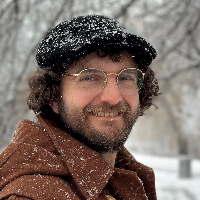4th International Conference on
Innovations and Advances in Cancer Research and Treatment
October 08-09, 2026 | Tokyo, Japan

Address: 68 Horinouchi, Narita, Chiba 286-0107, Japan
Cancer 2026

Harvard Medical School, USA
Abstract:
U.S. veterans with cancer often have multiple comorbidities, or
multimorbidity, but the nature of these comorbidities is poorly understood.
Here we define patterns of multimorbidity and their impact in older United
States veterans with non-small cell lung cancer (NSCLC). Latent class analysis
(LCA) was applied to identify patterns among 63 chronic conditions in 10,160 veterans
aged 65 years and older newly treated for stage IIIB or higher NSCLC in the
national Veterans Affairs health-care system from 2002 to 2020. Five patterns emerged,
with metabolic diseases (24.7% of all patients; HR [95% CI], 1.10 [1.04 -1.16]), psychiatric
and substance use disorders (16.0%; HR [95% CI], 1.17 [1.10-1.24]),
cardiovascular disease (14.4%; HR [95% CI], 1.22 [1.15-1.30]), and multisystem impairment
(10.7%;
HR [95% CI], 1.36 [1.26 -1.46]) having a higher hazard of death compared
to veterans with minimal comorbidity beyond their NSCLC (34.2%, reference),
controlling for age, gender, race, days between diagnosis and treatment, date
of diagnosis, and NSCLC stage and histology. Associations held after adjusting
for the count-based Charlson Comorbidity Index. Multimorbidity patterns were
also independently associated with emergency department visits and unplanned
hospitalizations. These findings demonstrate the need to move beyond
count-based measures of comorbidity, which are unlikely to capture the
complexity of multimorbidity in older adults with lung cancer, and to consider
cancer in the context of multiple chronic conditions.
Biography:
Dr. Joseph “Joe” Larsen, Ph.D. is a
post-doctoral research fellow at the Veterans Affairs (VA) Boston Healthcare
System in the Big Data Scientist Training Enhancement Program (BD-STEP) with an
appointment at Harvard Medical School and the Division of Aging at Brigham and
Women’s Hospital in Boston, Massachusetts. His research focuses include
modeling human evolution and the progression of diseases (e.g., cancer and
COVID-19) as well as his current work on the impact of multimorbidity patterns
in patients with non-small cell lung cancer. His research background during his
education at UCLA and USC to now his postdoctoral work at the VA Boston and
Harvard Medical School has garnered him skills in mathematical modeling,
statistical analyses, large database acumen, electronic health records (EHR)
utilization, survival analysis, and machine learning, which he uses to study
disease progression and its impact on patient outcomes and care utilization
